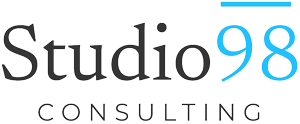In today’s competitive consulting market, fostering outstanding client connections is just as important to long-term success as providing top-notch solutions. At Studio98, a consulting firm known for its creative solutions and strategic insights, creating a culture that is centered around the needs of the customer may greatly improve client happiness, encourage repeat business, and boost overall performance. The best practices for developing a client-centric culture are examined in this article, along with practical advice for Studio98 to help it stand out from the competition and improve client relationships.
Understanding the Client-Centric Culture
A culture that is client-centric focuses on comprehending and satisfying the wants of the clients, influencing every part of the business. It’s a change from an approach that places more emphasis on services or products to one that puts the experience and satisfaction of the customer foremost. Every client interaction from the first engagement to continuing support and service provision is impacted by this culture
Key Attributes of a Client-Centric Culture:
- Empathy: Understanding and addressing clients’ needs, challenges, and goals.
- Responsiveness: Being agile and responsive to client requests and feedback.
- Proactivity: Anticipating client needs and offering solutions before they are explicitly requested.
- Transparency: Maintaining open and honest communication throughout the client engagement.

Develop a Deep Understanding of Client Needs

Client Research and Segmentation:
To build a client-centric culture, start with a thorough understanding of each client’s unique needs and business environment. Utilize client segmentation strategies to categorize clients based on their industry, size, and specific needs. This segmentation allows Studio98 to tailor its services and approach to align with the particular challenges and goals of each client.
Client Profiles and Personas:
Create detailed client profiles or personas that capture key information about clients, including their pain points, business objectives, and decision-making processes. Use these profiles to guide interactions and ensure that all team members have a clear understanding of the client’s context.
Regular Feedback Mechanisms:
Implement regular feedback mechanisms such as surveys, interviews, and focus groups to gather insights directly from clients. This feedback helps identify areas for improvement and gauge client satisfaction.
Foster Strong Communication Channels

Effective Communication Strategies:
Clear and consistent communication is crucial for building strong client relationships. Establish regular touchpoints with clients, including progress updates, meetings, and check-ins. Ensure that communication is not only informative but also engaging and meaningful.
Personalized Communication:
Tailor communication to the preferences and needs of each client. For example, some clients may prefer detailed reports and formal updates, while others might value quick, informal check-ins. Personalizing communication enhances the client experience and demonstrates a commitment to their preferences.
Transparent Reporting:
Be transparent about project progress, challenges, and successes. Share information proactively and address any issues openly. Transparent reporting builds trust and credibility with clients.
Build a Proactive and Solutions-Oriented Approach
Anticipate Client Needs:
Adopt a proactive approach by anticipating client needs and challenges before they arise. This involves staying informed about industry trends and potential disruptions that may impact clients. Offering solutions in advance demonstrates foresight and a commitment to client success.
Innovative Solutions:
Encourage innovation within the consulting team to develop creative solutions that address clients’ evolving needs. Promote a culture where team members are empowered to think outside the box and propose new ideas that could benefit clients.
Client Education and Empowerment:
Provide clients with valuable insights and resources that empower them to make informed decisions. This could include industry reports, white papers, or training sessions that enhance their understanding of relevant topics.
Enhance the Client Experience Through Personalization
Customized Service Delivery:
Personalize the consulting experience by tailoring services and solutions to the specific needs and preferences of each client. This could involve customizing deliverables, adjusting timelines, or offering specialized support based on the client’s requirements.
Client Relationship Management (CRM) Systems:
Leverage CRM systems to manage client interactions and track important information. A well-implemented CRM system can help streamline communication, manage client data, and ensure that all team members are informed about client preferences and history.
Client Appreciation Programs:
Implement client appreciation programs to recognize and reward loyal clients. This could include thank-you notes, exclusive offers, or invitations to special events. Recognizing and celebrating client relationships fosters goodwill and strengthens the partnership.
Create a Client-Centric Organizational Culture
Leadership Commitment:
Cultivating a client-centric culture starts at the top. Leadership should champion client-centric values and set an example for the rest of the organization. Leaders should actively engage with clients and demonstrate a commitment to understanding and meeting their needs.
Employee Training and Development:
Provide training programs that emphasize the importance of client-centricity and equip employees with the skills needed to deliver exceptional client service. Training should cover topics such as effective communication, problem-solving, and empathy.
Performance Metrics and Incentives:
Develop performance metrics that align with client-centric goals. Measure success based on client satisfaction, retention rates, and the quality of client interactions. Implement incentive programs that reward employees for outstanding client service and contributions to a positive client experience.
Cross-Functional Collaboration:
Encourage collaboration across different departments and teams to ensure a unified approach to client service. Foster an environment where information and insights are shared freely, and everyone is aligned with the goal of enhancing the client experience.
Continuously Evaluate and Improve

Regular Reviews and Assessments:
Conduct regular reviews of client interactions and feedback to assess the effectiveness of client-centric initiatives. Use these assessments to identify areas for improvement and make necessary adjustments to enhance the client experience.
Benchmarking and Best Practices:
Stay informed about industry best practices and benchmark Studio98’s client service practices against leading consulting firms. Continuously seek opportunities to adopt new strategies and technologies that can improve client relationships.
Client Satisfaction Surveys:
Implement client satisfaction surveys at key stages of the client engagement to gather real-time feedback. Analyze survey results to identify trends and areas where additional focus is needed.
Agile Adaptation:
Adopt an agile approach to client service, allowing for flexibility and adaptability in response to changing client needs and market conditions. Being responsive and adaptable demonstrates a commitment to client satisfaction and long-term success.
Conclusion
Building a client-centric culture at Studio98 requires a comprehensive approach that encompasses understanding client needs, fostering effective communication, being proactive and solutions-oriented, personalizing the client experience, creating a supportive organizational culture, and continuously evaluating and improving client interactions. By embracing these best practices, Studio98 can enhance client relationships, drive business growth, and position itself as a leader in the consulting industry.
Incorporating these strategies into Studio98’s operations will not only elevate client satisfaction but also reinforce the firm’s reputation for excellence and innovation. As the consulting landscape continues to evolve, a client-centric approach will be a key differentiator that sets Studio98 apart from competitors and ensures long-term success in delivering value to clients.
If you have any questions, or like to know more, click here to schedule a call with our Sales Team

